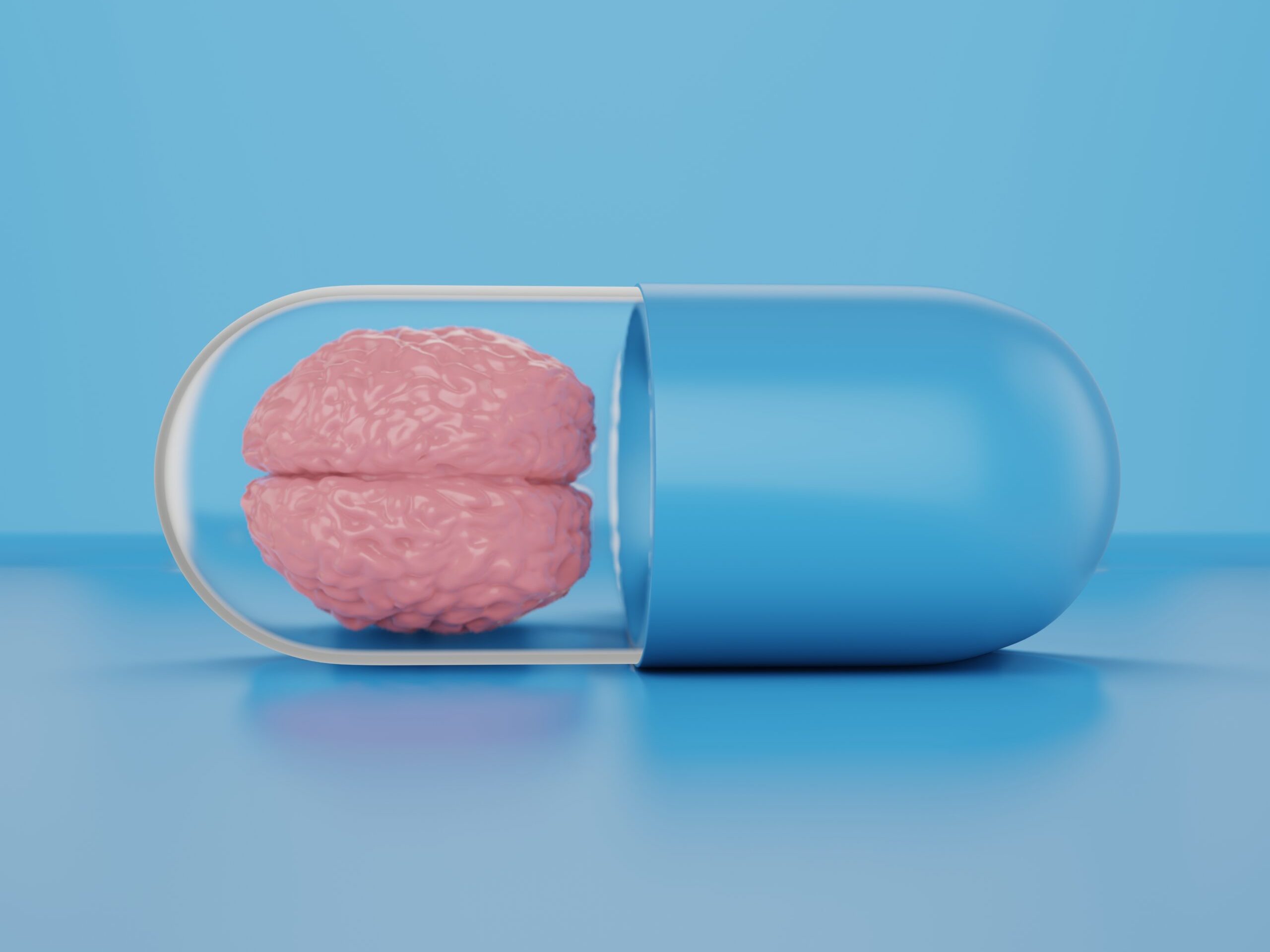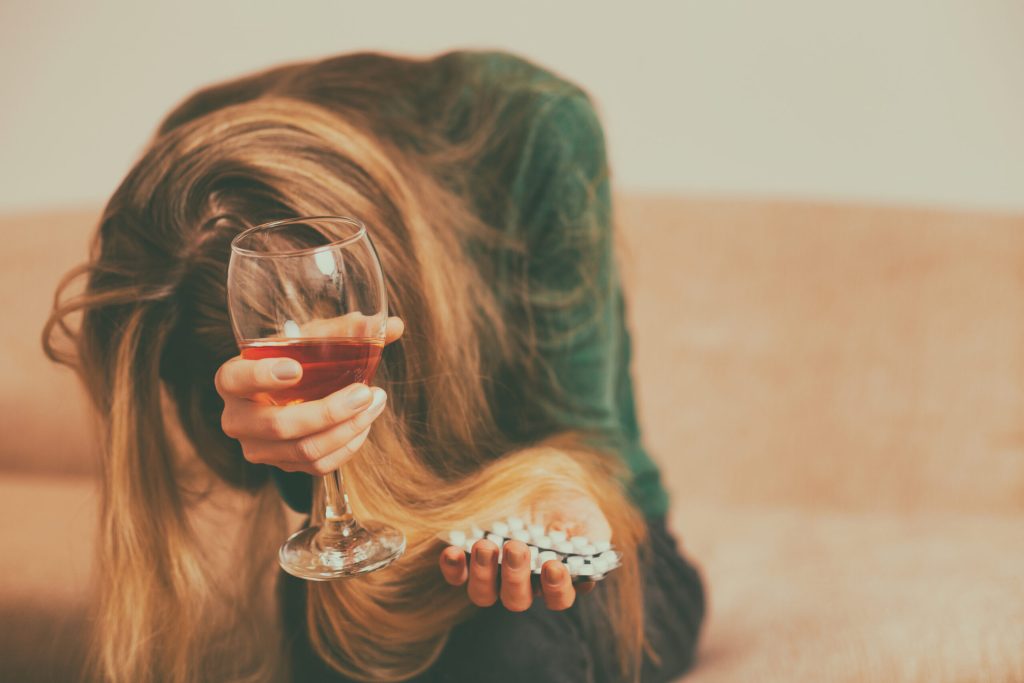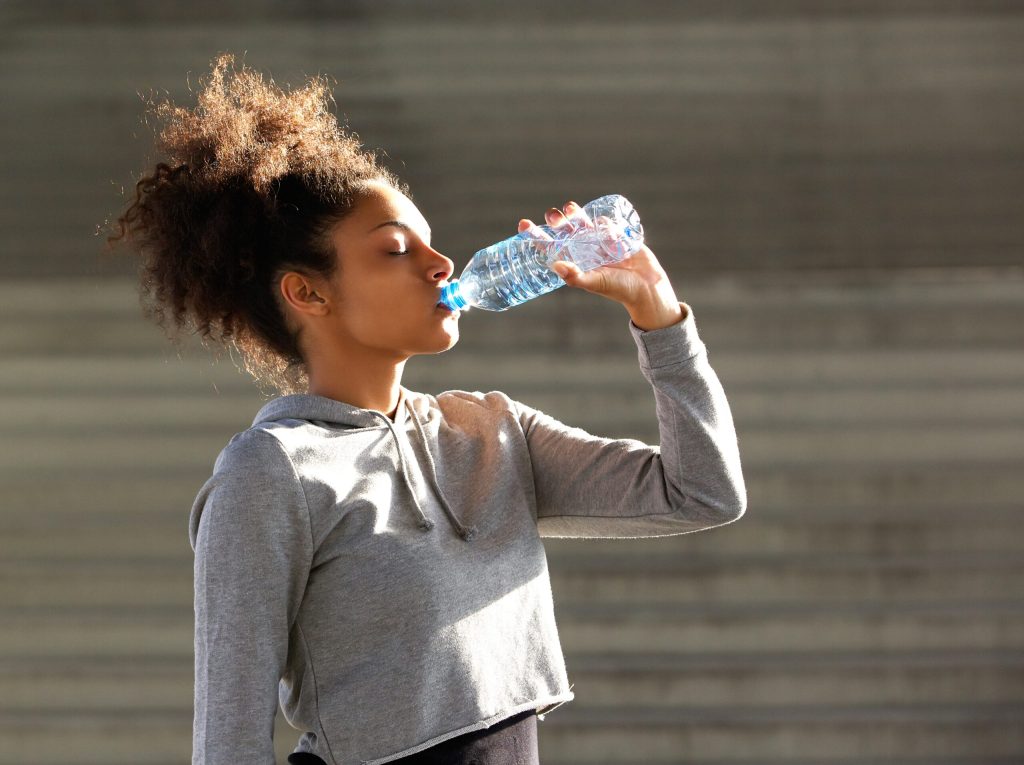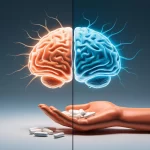Table of Contents
Nootropics are substances known for enhancing cognitive function. They can boost memory, focus, and mental clarity. Alcohol, on the other hand, is a depressant that slows brain activity and impairs cognitive abilities.
Many people wonder if it’s safe to combine nootropics with alcohol, and what effects this mixture might have. Some believe that nootropics can help counteract alcohol’s negative effects, like mental fog or sluggishness, but is that really the case? How do these substances interact in the body?
This article explores the effects of mixing nootropics with alcohol, the potential risks involved, and whether it’s safe or beneficial to use them together. We’ll also look at which nootropics might have the most positive effects when used in combination with alcohol, as well as some guidelines on using both responsibly.
Read on to learn more about nootropics and alcohol.
What Are Nootropics?

Nootropics, also called “smart drugs” or “brain boosters,” are substances that promote cognitive function. They help improve memory, focus, creativity, and mental clarity. Nootropics come in different forms, including natural supplements like herbs and amino acids, and synthetic compounds designed to improve brain health and function. They are often used by people seeking to enhance mental performance or combat cognitive decline.
Popular Nootropics
Some popular nootropics include:
- Caffeine: A stimulant that enhances focus and energy.
- L-theanine: Often paired with caffeine, it promotes calm without drowsiness.
- Modafinil: A prescription drug used to treat sleep disorders, known to improve focus and alertness.
- Nicotine: A stimulant found in tobacco products, known for its addictive properties and its ability to enhance concentration and mood temporarily.
- Racetams: Synthetic nootropics that boost memory and learning ability.
Many people use nootropics to enhance their performance, especially in work or study settings. They are typically used to increase mental clarity and reduce cognitive fatigue.
What Happens When You Drink Alcohol?
Alcohol and Cognitive Function
Alcohol is a depressant, meaning it slows down brain activity. After drinking, many people experience poor memory, slower decision-making, and impaired coordination. Alcohol affects neurotransmitters in the brain that regulate mood and cognition. For example, it increases the effects of GABA (a neurotransmitter that slows brain activity) and decreases glutamate (a neurotransmitter that increases brain activity). This causes the familiar effects of drowsiness, reduced inhibition, and poor motor coordination.
Short-Term Effects of Alcohol
When you drink, alcohol has an immediate effect on your cognitive abilities. You may feel relaxed at first, but as you continue to drink, your mental functions start to decline. Your ability to focus and remember things becomes impaired. This can last for several hours after drinking, depending on how much you consume.
Can Nootropics Help Counteract Alcohol’s Effects?
Nootropics for Mental Clarity
Alcohol often leaves a lingering sense of mental fog. Natural nicotine, consumed in controlled doses through lozenges or gum, is an effective option for regaining focus and mental clarity. It stimulates dopamine and acetylcholine production, which counteract alcohol’s cognitive dullness and improve focus. Like L-Theanine, nicotine doesn’t fully reverse alcohol’s sedative effects but helps clear the mind.
Natural nicotine, when used in moderation, can also help clear mental fog and enhance focus, especially after alcohol consumption.
It supports cognitive function and can improve alertness without the sedative effects often experienced with alcohol.
Modafinil and Focus
Modafinil is a popular nootropic known for promoting wakefulness. It can help increase alertness and focus, especially after drinking. If alcohol has made you feel groggy, modafinil might give you a boost. It works by enhancing the levels of certain neurotransmitters in the brain. These include dopamine, which improves focus and mood. However, it’s crucial to remember that modafinil won’t fix the physical impairments caused by alcohol. It can’t reverse the lack of coordination, slow reflexes, or impaired judgment. So, while modafinil may help with mental sharpness, it doesn’t make you safer or more coordinated after drinking.
Racetams and Memory
Racetams, like piracetam and aniracetam, are known for improving memory and cognitive function. After drinking, they might help you feel more mentally alert. These nootropics can enhance your ability to think clearly and improve memory recall. However, racetams don’t address the coordination issues caused by alcohol. They may sharpen your thoughts, but they won’t help with the physical effects of alcohol, such as reduced motor skills. So, while racetams can boost memory and focus, they cannot undo the physical and mental impairments caused by alcohol consumption.
Nicotine and Memory After Alcohol
Nicotine, as a nootropic, can aid memory recall impaired by alcohol. By increasing acetylcholine levels, it supports the brain’s capacity to retain and retrieve information. Consuming nicotine in lozenge or gum form can sharpen mental clarity without the risk of overstimulation that synthetic nootropics like racetams might present.
Risks of Mixing Nootropics and Alcohol

Stimulant and Depressant Conflict
Alcohol as a Depressant
Alcohol is a depressant. It slows down brain activity. This causes you to feel relaxed or drowsy. It can affect your coordination and judgment.
Nootropics as Stimulants
On the other hand, nootropics are often stimulants. Stimulants, like caffeine or modafinil, increase brain activity. They make you feel more awake and focused.
The imbalance
Mixing alcohol and nootropics creates a conflict in the body. Alcohol makes your brain slower. But nootropics try to speed up brain function. This imbalance can be difficult for the body to handle. You might feel mentally sharper after taking nootropics. However, alcohol can still slow down your physical responses. Your coordination and judgment may still be impaired. Even if you feel more alert, your reflexes could be slower. This can lead to accidents or mistakes.
Overstimulating the Brain
Effects of Mixing Stimulants and Alcohol
When you combine alcohol with stimulatory nootropics, it over-stimulates your brain. Caffeine, a common nootropic, can cause anxiety and jitters when mixed with alcohol. You may feel restless or on edge.
The Brain’s Confused State
Your brain might be overly alert, yet fatigued at the same time. This mental state can be confusing and uncomfortable. You could experience a rapid heart rate. This overstimulation can also make hangovers worse. The next day, you may feel more exhausted and mentally foggy. It becomes harder to recover. The combination of alcohol’s sedative effects and nootropic stimulation strains your brain. It needs time to reset.
Liver Strain
The role of the liver
Both alcohol and nootropics are processed by the liver. Alcohol is metabolized there, but heavy drinking puts stress on the liver. Nootropics, especially synthetic ones, also require processing by the liver.
Extra Pressure on the Liver
When you mix alcohol with nootropics, the liver has to work harder. This added stress can lead to liver damage. Over time, mixing these substances might impair liver function.
Long-Term Effects
Regularly combining alcohol and nootropics puts you at risk for liver problems. You could develop liver disease or other complications. It’s important to protect your liver. Avoid mixing alcohol and nootropics too often. Give your liver time to recover between uses.
Increased Risk of Negative Side Effects
Amplified Effects
Mixing nootropics with alcohol increases the risk of negative side effects. The effects of both substances can amplify each other. For example, alcohol’s sedative effects may be reduced by nootropics. However, this combination could cause dizziness or nausea.
Unpredictable Responses
Stimulatory nootropics, like caffeine, might reduce alcohol’s drowsiness. But this can also make you feel jittery or agitated. This confusion makes it harder to know how much alcohol you’ve consumed. You may drink more than you planned. This can result in unpleasant physical symptoms. It can also make it harder to manage your limits.
Safe Ways to Combine Nootropics and Alcohol

Use Nootropics in Moderation
Avoid Overuse
Natural nootropics like nicotine, consumed in low doses via gum or lozenges, can safely enhance focus and mental clarity without overstimulating the brain. Avoid overuse to minimize dependency risks.
If you plan to drink, it’s essential to use nootropics in moderation. Nootropics can be helpful, but excessive use alongside alcohol can be harmful.
Support Your Mental State Early
Instead of using nootropics to “counteract” heavy drinking, focus on using them earlier in the day. Take them before consuming alcohol to help you stay productive. This way, you can enjoy the benefits of nootropics without overwhelming your brain later.
Know Your Limits
Using nootropics responsibly will help you feel focused and clear. Overloading your brain with nootropics and alcohol together can cause confusion and discomfort.
Avoid Powerful Nootropics When Drinking
Stay Away from Strong Nootropics
If you plan on drinking, avoid strong nootropics like modafinil or noopept. These substances can overstimulate your brain, especially when mixed with alcohol.
Choose Milder Options
Instead, consider milder nootropics like L-theanine or Rhodiola rosea. These provide balanced effects that support mental clarity and calmness. They are less likely to create strain when combined with alcohol.
Reduce the Risk of Overstimulation
Using potent nootropics with alcohol can lead to anxiety, jitters, and other unpleasant effects. Stick to milder options to prevent overstimulation and maintain balance.
Hydrate Before and After Drinking
Alcohol and Dehydration
Alcohol is a diuretic, meaning it makes you lose fluids quickly. This can lead to dehydration.
Nootropics and Dehydration
Some nootropics also have mild diuretic effects. This makes staying hydrated even more important.
Drink Plenty of Water
To combat dehydration, drink water before, during, and after drinking. Hydrating properly can reduce headaches and dizziness. It helps your brain function and supports overall recovery from alcohol.
Know Your Limits
Listen to Your Body
Everyone reacts differently to nootropics and alcohol. What works for one person may not work for you.
Start Small
If you combine nootropics and alcohol, start with small amounts. Pay attention to how your body responds.
Adjust as Needed
It’s important not to mix too many nootropics at once. Make adjustments based on how you feel. This way, you can avoid unpleasant side effects.
Give Your Body Time to Recover
Avoid Overuse
Regularly combining alcohol and nootropics can strain your liver and brain. After drinking or using nootropics, give your body time to recover.
Rest Between Uses
Don’t use alcohol and nootropics together too often. Allow your body to recover fully before using them again.
Support Long-Term Health
Giving your body regular breaks from alcohol and nootropics helps maintain mental clarity and overall health.
Long-Term Effects of Mixing Nootropics and Alcohol

Cognitive Decline
Long-term mixing of alcohol with synthetic nootropics increases the risk of cognitive decline. Natural nicotine, used sparingly, supports neurotransmitter health and may mitigate alcohol-related cognitive dullness when consumed responsibly.
Impact on Brain Cells
Regularly mixing alcohol and nootropics may harm your brain in the long term. Alcohol has been shown to damage brain cells, especially when consumed often.
Risk of Dependency
Nootropics can also cause dependency when used too frequently. If combined with alcohol, this can accelerate cognitive decline.
Protecting Your Mental Health
To protect your cognitive function, it’s important to use alcohol and nootropics sparingly. It’s best to avoid combining the two regularly. Keeping them separate is a safer choice for your mental health.
Mental Health Issues
Chronic alcohol use combined with stimulatory nootropics may exacerbate mental health issues. Nicotine, with its mood-stabilizing effects, offers a balanced alternative to synthetic nootropics. It provides cognitive support without masking alcohol’s sedative properties.
Alcohol’s Impact on Mental Health
Chronic alcohol consumption can contribute to mental health issues such as depression and anxiety. Drinking excessively can affect your mood and overall well-being.
Temporary Relief, Not a Solution
Mixing alcohol with stimulating nootropics might offer temporary relief. However, this doesn’t address the root cause of the issue. It may even mask the effects of alcohol, which can worsen long-term mental health problems.
Focus on Addressing the Root Causes
If you’re struggling with mental health issues, it’s important to seek professional help. Don’t rely on alcohol or nootropics to cope. Working on the root causes of depression or anxiety is essential for long-term mental health.
Liver Damage
Strain on the Liver
Alcohol is known to put a strain on the liver. Drinking heavily over time can impair liver function.
Increased Strain with Nootropics
When alcohol is combined with nootropics, the strain on the liver increases. Both alcohol and nootropics need to be processed by the liver, adding to its workload.
Risk of Liver Damage
Over time, this increased strain can damage the liver. Protect your liver by using alcohol and nootropics in moderation. Avoid combining them frequently to reduce the risk of liver damage.
Conclusion
While combining natural nootropics like nicotine with alcohol can provide cognitive benefits such as improved focus and mental clarity, it’s essential to use them responsibly. Natural nicotine, when consumed through gum or lozenges, supports brain function without overstimulating or overburdening the liver. Avoid frequent or excessive use of alcohol and nootropics together, as this may lead to cognitive decline or liver strain. Moderation and hydration are key to safely enjoying their benefits.

Hi, Dave Michaelson here, a longtime biohacker. I started this blog to help you focus on natural ways to improve health and performance. My work revolves around analyzing the science behind cognitive enhancers, nutrition, and longevity strategies. Natural nicotine products are one of my interests, particularly their effects on focus and energy. Everything I share is based on research and real-world application, ensuring practical, reliable insights. The information on my blog is not medical advice. Please do your own research.




